End of Project LEO celebrations!
Project LEO, a unique and ambitious four-year collaborative innovation programme, celebrated the end of the project and the launch of its final report.
Project LEO, which stands for Local Energy Oxfordshire, was a multi-million-pound initiative that aimed to trial how we can create a greener, more flexible and fair electricity system not just in Oxfordshire but across the UK.
Creating a buzz in Oxfordshire
Project LEO was established by a partnership of ten organisations including Low Carbon Hub, as well as others from the business, academic, local government sectors as well as the energy distribution network. Its aim was to find ways to address the challenge of decarbonizing the electricity system while meeting the growing demand for electricity resulting from the adoption of cleaner technologies such as electric vehicles and heat pumps. The project aims to identify and develop smart technologies, services, and markets that can help maximize the use of existing network capacity, avoiding costly upgrades, and support local communities in achieving their net zero ambitions. The ultimate goal is to ensure a just and cost-effective transition to net zero.
Over the four years that Project LEO has run, it has generated evidence and key messages for policy makers and regulators to support the transition to net zero. We identified barriers to flexibility trading, such as the complexity of markets, transactional and legal costs, and the fact that flexibility itself remains undervalued, particularly locally.
Tackling these barriers is imperative if net zero is to be delivered at the pace that the science requires. Our recommendations include:
- Local Area Energy Plans (LAEPs) should be mandatory, supported by appropriate resourcing, and dedicated to a ‘whole systems’ approach that will adopt the best solutions for each area, informed by the priorities of local communities.
- Aggregators in the widest sense are essential to develop flexibility markets, offering the skills and expertise to truly open up participation in these markets to whoever wishes to engage in them: this will be core to delivering a fair transition.
- Investment in data and digital is key to enabling more efficient and smarter local area networks for the long term and in anticipation of increasing demand, to ensure our net zero targets are reached.
You can read the full Project LEO report below.
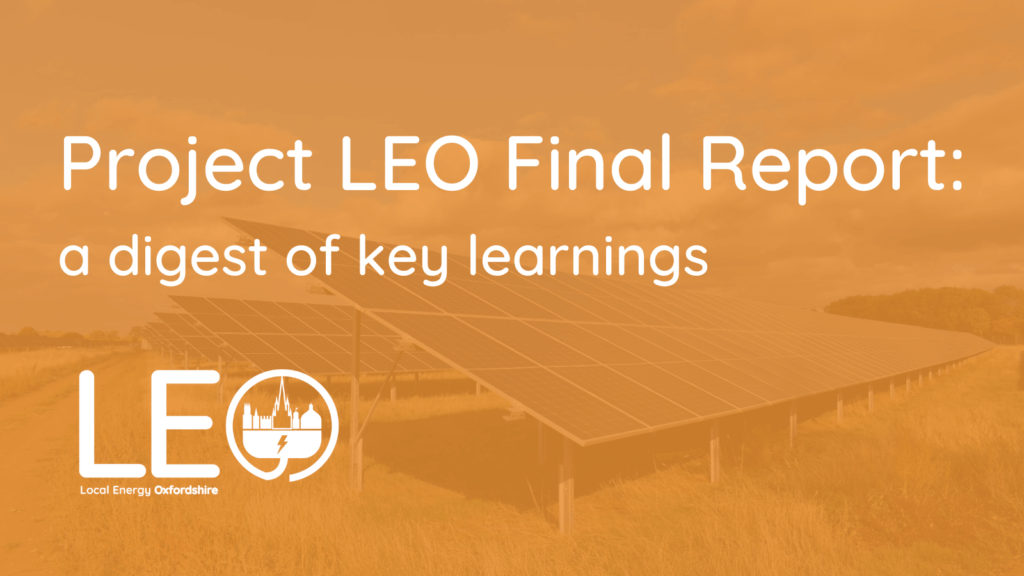
Celebrating with the community
On Thursday, 23 February, a celebration event was held at Oxford Town Hall to mark the successful completion of Project LEO. The Lord Mayor of Oxford, Cllr James Fry, was in attendance, alongside project partners and participants in the Smart and Fair Neighbourhood (SFN) trials.
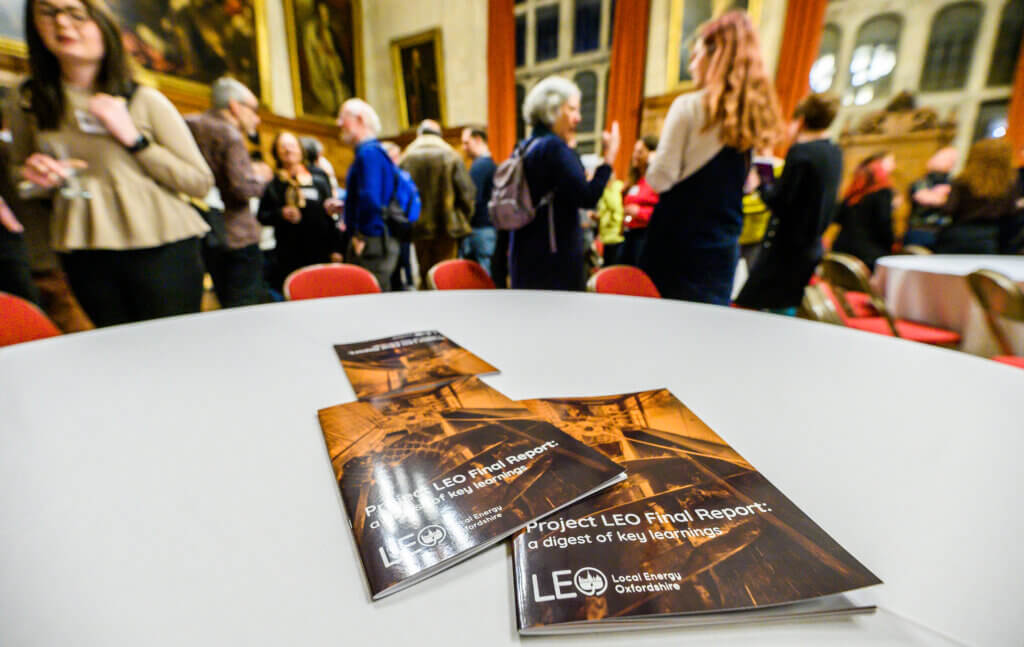
Melanie Bryce, Oxfordshire Programme Director at Scottish and Southern Electricity Networks, and Mairi Brookes, Smart Energy Systems Director at Low Carbon Hub, spoke at the event, sharing their thoughts on the project’s success and the impact it has had on communities taking part in its innovative grid edge trials. You can read Melanie’s summary of the event here.
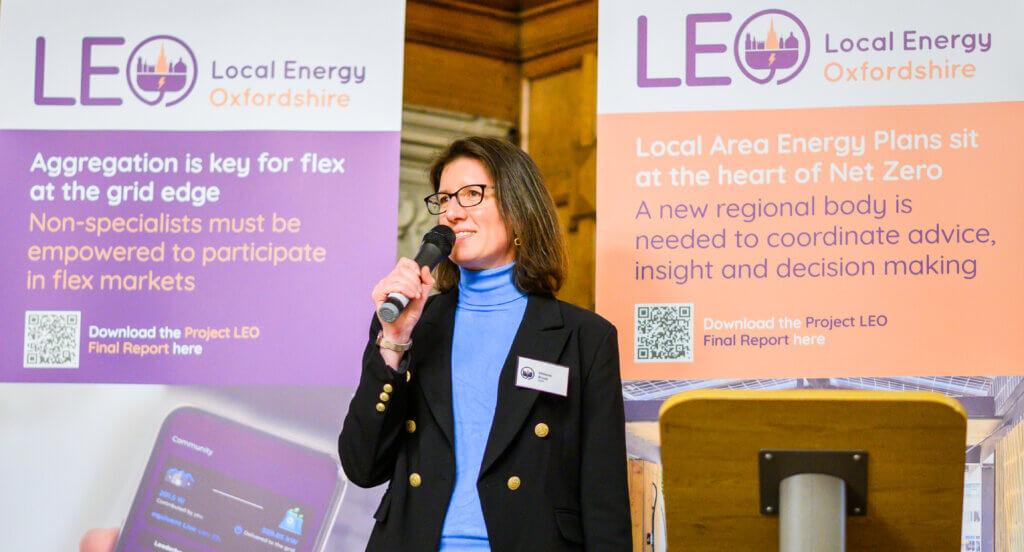
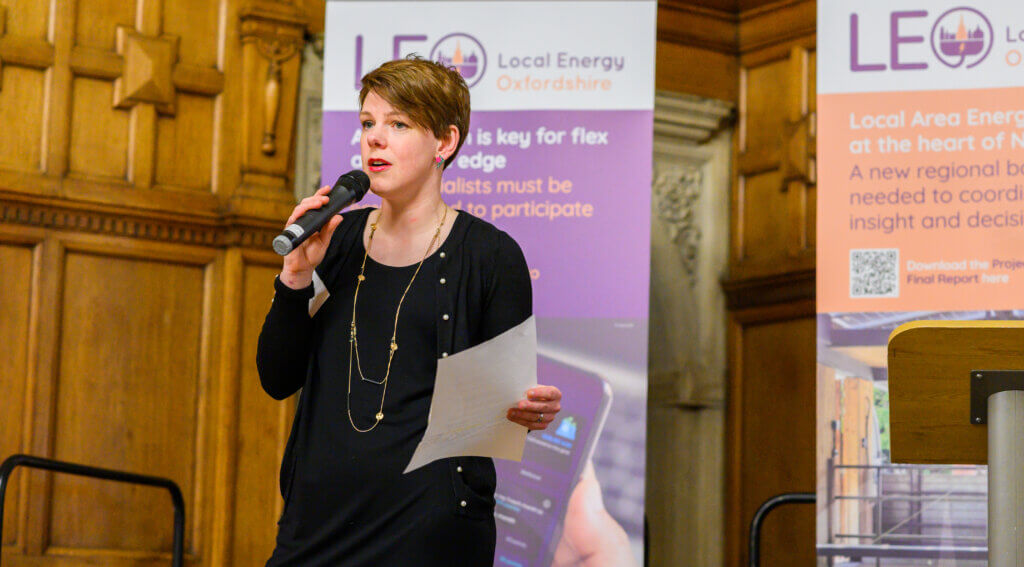
Attendees were excited to watch videos sharing our partners’ reflections of the project and the Smart and Fair Neighbourhood trials, highlighting the range of the project and the invaluable insights into how flexibility services can sit at the heart of a smarter, low carbon, locally balanced energy system. The two links can be found below.
The event was catered by Elegant Cuisine, a local catering company that specializes in providing high-quality food for events and special occasions. Attendees were also treated to a delicious LEO branded cake and cupcakes from Happy Cakes, which were specially made for the launch event.
To mark the occasion, the cake was cut by Prof Malcolm McCulloch, an Associate Professor at the University of Oxford and one of the key figures behind Project LEO as its Principal Investigator.
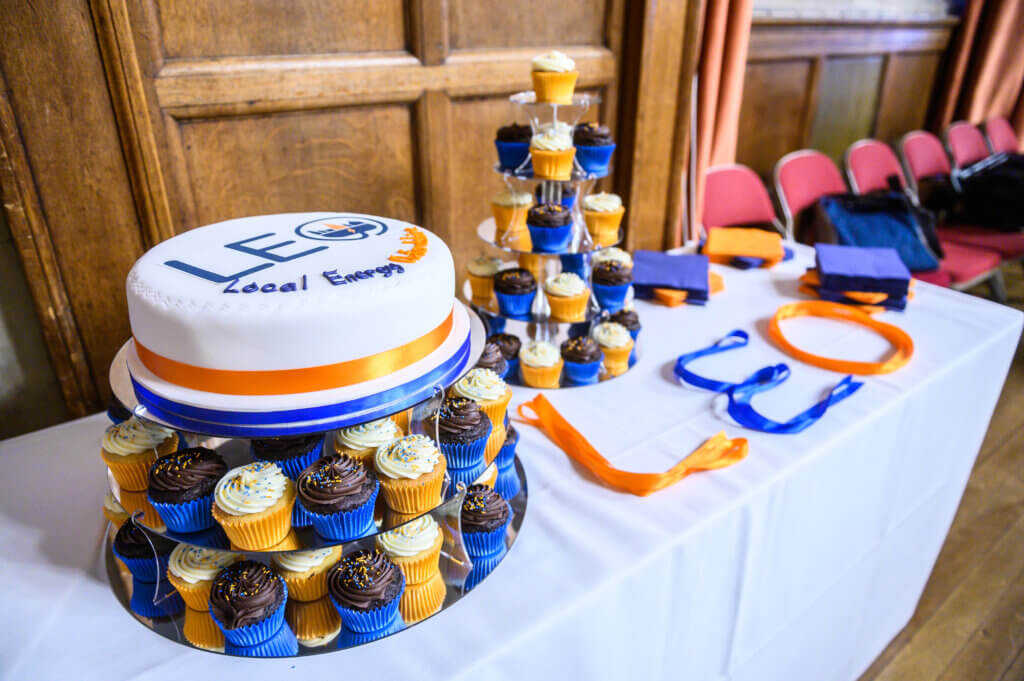
Afterwards, attendees were invited to participate in Project LEO Jargon Jenga and Low Carbon Hub’s 3D version of the peer-to-peer grid balancing game, ‘Watts the Deal?’.
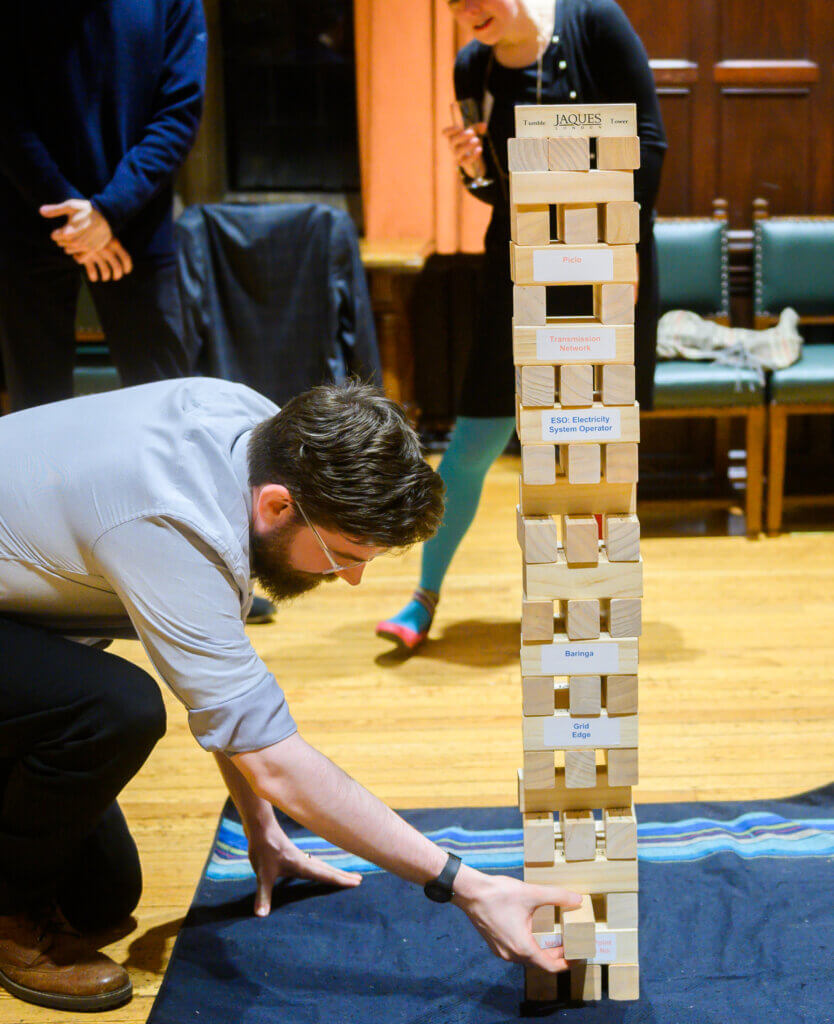
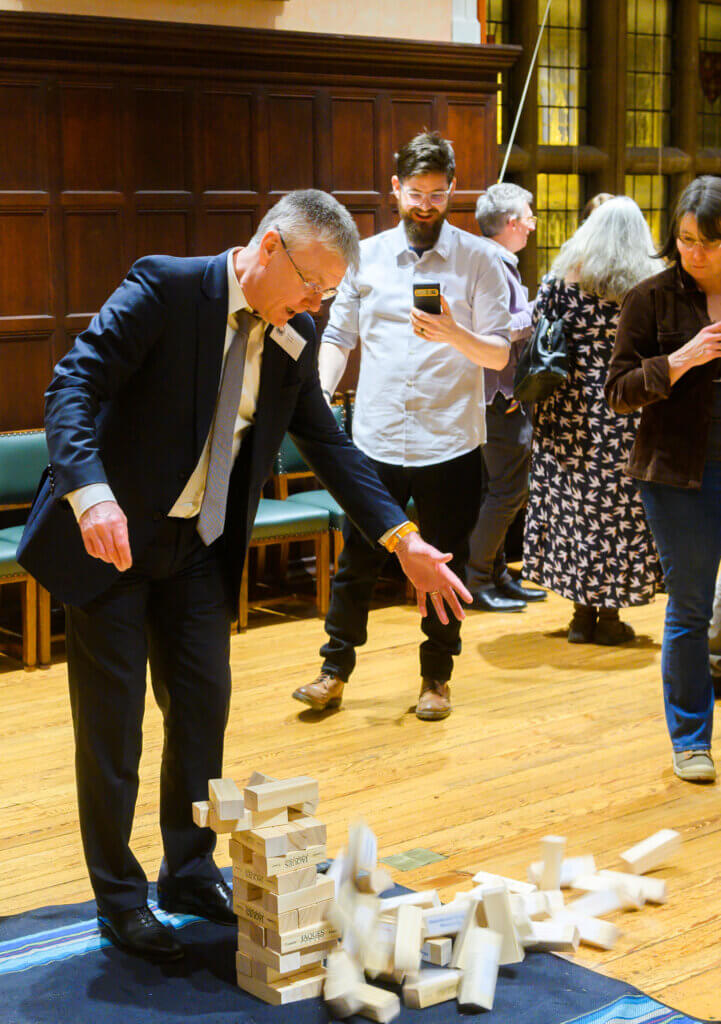
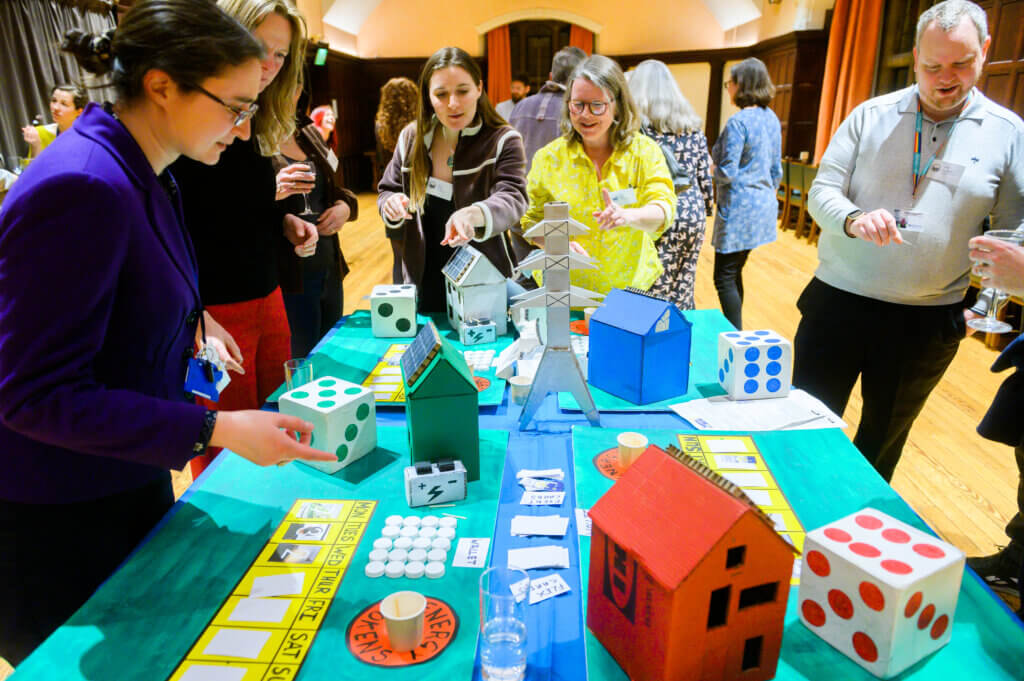
We all know Oxfordshire is an amazing place to live and work, but the level of collaboration has surpassed even our expectations of what we thought might be possible. Although this Project has its fair share of technical aspects, it has always been people at its heart.
Mairi Brookes, Smart Energy Systems Director, Low Carbon Hub
The celebration event was a fitting tribute to the hard work and dedication of everyone involved in Project LEO. It highlighted the project’s success in showing how we may transition to a more decentralised energy system, focused on balancing energy use at the grid edge, closest to homes and businesses.
The celebration event followed a similar event in Westminster on Wednesday, sponsored by Chris Skidmore MP, who led the recent independent net-zero review for the UK government.
Westminster welcomes the Project LEO final report
At an event in Westminster on Wednesday, 22 February, hosted by Chair of the Net Zero Review, Chris Skidmore MP, we published the final report for Project LEO. You can read more about the Net Zero Review and its relation to community energy in our blog here.
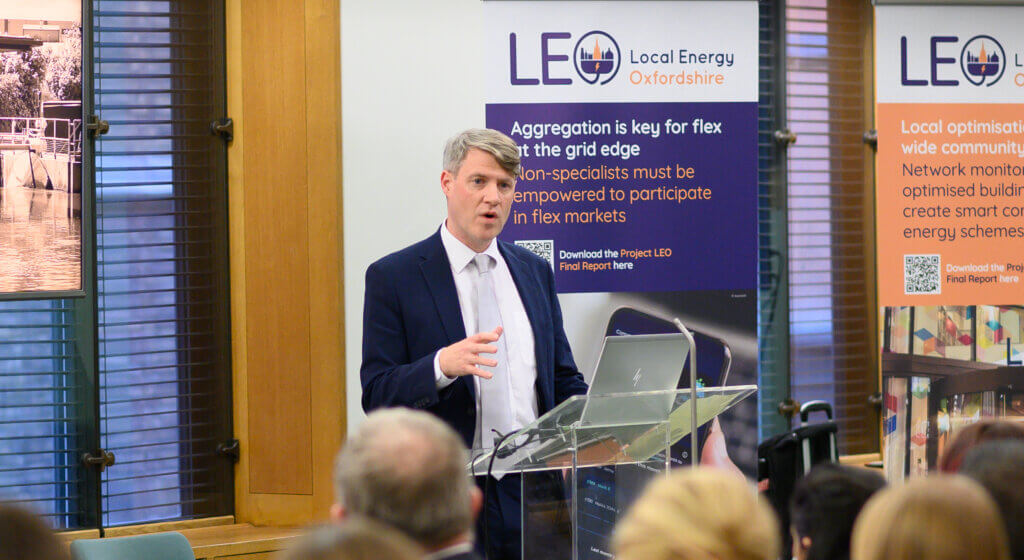
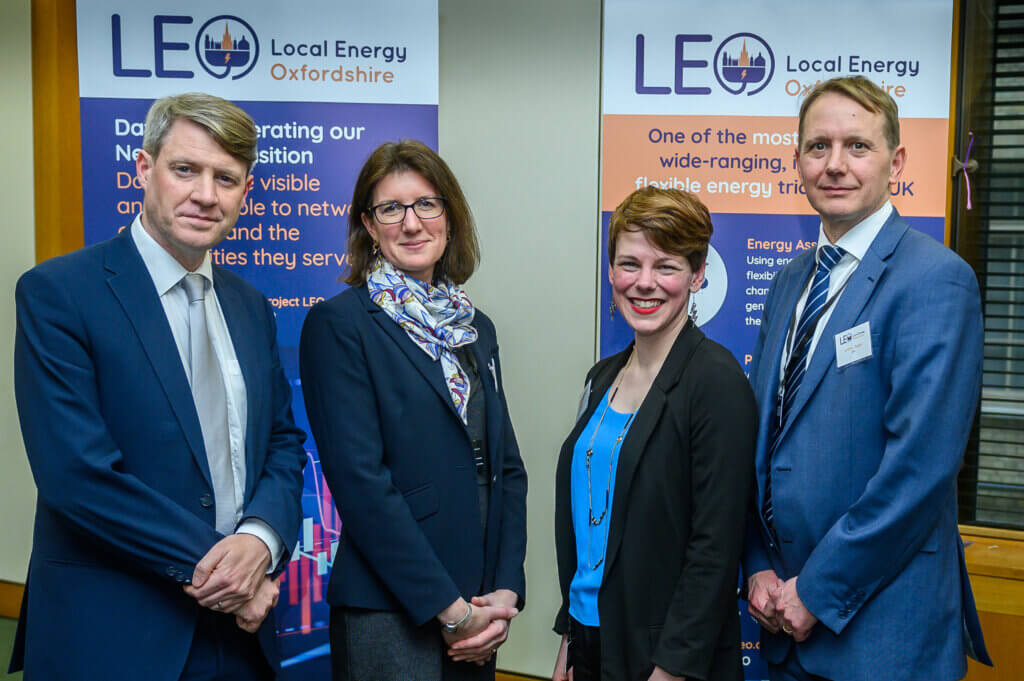
At the Westminster event, Chris Skidmore said:
“Project LEO is a ground-breaking trial which has advanced our collective thinking on how to make decarbonisation feasible and beneficial at the local level. Our electricity networks lie at the heart of some of the most difficult problems that must be solved if the UK is to meet its net zero targets and Project LEO has made a massive contribution to identifying and proposing solutions for those challenges.
“Making maximum use of the infrastructure we have in place is vital, but network operators must also be allowed to anticipate future demand and invest ahead of need, increasing the capacity of their network. Delays in expanding grid capacity mean cheap, low carbon power, and the goodwill of engaged communities, risks being wasted.”
Both of these events in London and Oxford were a fitting celebration of the successes, learnings and invaluable insights of Project LEO. The project has successfully demonstrated the potential for creating a greener, more flexible and fair energy system in Oxfordshire and beyond.
All photographs taken by Richard Cave.
